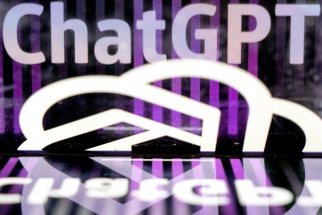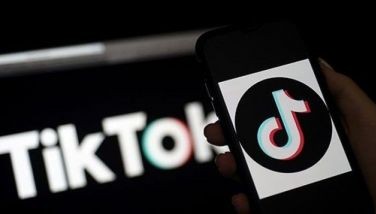From books to eBooks: Reading goes high-tech
MANILA, Philippines - Book lovers, even the most technologically handicapped, will pause at this recent news on the Web: 3.7 million books are available for download at the 5th World eBooks Fair until Aug. 4 to celebrate the 40th anniversary of the eBook.
It’s probably time for a reality check. Sooner than later, book lovers must make the journey from bookshelves to hard drives.
The New York Times recently published an article quoting Amazon as saying that for the last three months “sales of books for its e-reader, the Kindle, outnumbered sales of hardcover books.” Amazon, it said, sold 143 Kindle books for every 100 hardcover books, including hardcovers for which there is no Kindle edition.
The Kindle now sells for only $189 while its upgraded version, the Kindle DX, retails for $379. But competition is also heating up. The fabled Apple iPad, which promises to be more than an eBook reader but a lifestyle gadget as well, is spiking up interest in the digital device and the new art of reading.
Dr. Patricia May Jurilla, professor at the UP Department of English and Comparative Literature, said in a forum on e-Book Readers hosted by the IT Journalists Association of the Philippines (Cyberpress) that books, the so-called last bastion of the analog world, is undergoing a major technological shift, which did not really happen until now.
“The historian Robert Darnton summed up the technological shift this way: from the time mankind learned to write to the invention of the Codex in the first century BC, it took 4,300 years; from Codex to Guttenberg’s movable type, 1,106 years; from the movable type to the Internet, 554 years; from Internet to search engines, 19 years; from search engines to Google’s algorithmic relevant search, seven years. It would add up to that: from Google to Google Books six years, from Kindle to iPad three years,” she said.
“You will notice the gap in time from one shift to another is quite shrinking,” she added.
Jurilla emphasized the repetitions and recurrences of technological shifts over time as well as the points of co-existence. “Speech and writing co-existed and continue to co-exist, papyrus rolls co-existed with codices and even handwritten manuscripts co-existed with the earliest printed books,” she said.
A new point of co-existence is happening now as well with books and eBooks. According to The New York Times, “Amazon now has 630,000 Kindle books, which is still a small fraction of the millions of books sold on the site.” Yet when one considers the higher percentage of sales for books in the digital format, it may not take long for the parity to begin.
Turning digital
The individual timeline for migration to digital format would vary from person to person, but as in the case of all other products that turned digital, it would be hastened by the availability and affordability of devices that would make it easier for people to migrate to the new format.
JV Rufino, director for mobile for the Inquirer Group, said in the same forum that with the continued decline of the cost of eBook readers in the market, it makes sense to invest in one, as Kindle books, for example, are cheaper than traditional books, and many eBooks can be even downloaded for free or for a minimal subscription fee.
Over time, you recover the initial cost of the e-reader through savings from individual books you purchase, he said.
The books available for free download at the world’s eBooks Fair are those whose copyright has lapsed and are now in the public domain. After Aug. 4, these books are still available for download for a subscription fee at hundreds of eLibraries around the world such as the the World Public Library which has 750,000 titles, Project Gutenberg which has around 100,000 eBooks, Wattpad with 400,000 titles and The Internet Archive which has over two million titles.
The titles are available in various formats as plain or simple text, html, PDF, ePub or Mobipocket.
Michael Hart, founder of Project Gutenberg, said in an e-mail invitation to the 5th World’s eBooks Fair, said that you can put a million plain text eBooks on a terabyte drive at a million characters per book.
“This is a pretty decent-sized book of about 300 pages. If you run in .zip files or other similar compression formats you can have a terabyte drive with about 2.5 million similarly sized eBooks,” he added.
Project Gutenberg itself does not charge for its collection but welcomes small donations to keep the effort going. “Our books were previously published on paper by bona fide publishers and digitized by us with the help of thousands of volunteers,” it said in its website.
Local e-publishing
Educational publishers in the Philippines such as Vibal Foundation and Diwa Learning Systems, have their own modest effort in digitizing their product offerings to conform to current trends.
Did you know, for example, that the iconic Bato Balani science magazine that children of the ‘80s and the ‘90s subscribe to is now available in digital format?
Jose Maria Policarpio, executive director of Diwa Learning Systems, said many of their textbooks now come with interactive modules and supplemental activities available for download from their online resource portals.
“Ten years ago, we realized that the Internet was becoming more ubiquitous... so we decided to venture into producing our content, which was curriculum-based, to digital format,” he said.
It was a big risk, he said, considering that 10 years ago, nobody was quite sure how the market would move, although by then eBook technology would have been 30 years old.
Now, Policarpio said Bato Balani Online has 700,000 paid subscribers and growing. “We can foresee a future where an eBook reader would be practically a commodity for students, and the content would be available to them on a subscription basis,” he said.
Vibal Foundation, on the other hand, has already ventured into publishing eBooks, starting off with four academic and scholarly books in partnership with De La Salle University.
The four eBooks are “Sanghiyang sa Mundo ng Internet (Reflections on the World of the Internet)” by Rhoderick Nuncio; “Filipino Religious Consciousness” by Sylvia Palugod; “Maharang, Mahamis na Literatura sa Tataramon ng Bikol (Spicy, Sweet Literature in Bicol Language)” by Paz Verdades Santos; and “Mabathalang Pag-aaral (Religious Studies)” by Jose de Mesa.
The books may be purchased at Apple’s iBook store and Amazon.com.
Convergent devices
The market for eBook readers is actually already quite overcrowded, said Kristine Mandigma, editor-in-chief and project director of Vibal Foundation.
After the Kindle, many brands of dedicated eBook readers have sprouted in the market such as the Sony Reader and the Barnes and Noble Nook. However, the coming of the Apple iPad really ushered in the era of convergent devices, according to Mandigma.
“The iPad can read eBooks and at the same time browse the Web and functions as alternate computing device with its own operating system and rich media support,” she said.
Coming at the heels of the iPad is a wide variety of tablet PCs, promising exactly the same or even more features than the iPad.
This, Mandigma added, will change the publishing landscape further. As it is now, the Kindle book can’t be read by the iPad or the Sony Reader and vice versa. Manufacturers of these devices have their own dedicated retail channels.
But soon to be available locally is a reader from RedFox called the Wizlib, which promises to change all these again.
John Macasio, general manager of Red Fox, revealed to the forum audience that the WizLib was launched in the Philippines last June 24 but will be sold starting next month.
“There are a lot of eBooks already in the market,” Macasio admitted. “When we started this concept, we actually focused on the business model. We decided to bring in our eBook and we called it the Redbox WizLib because it provides connections to various digital shelves. It is not locked to any provider and open to any knowledge maker or knowledge user,” he said.
An “open” device would allow anyone, said Macasio, to store digital files in various formats, in effect becoming a mobile digital library that one can bring anywhere.
With the shift to convergent devices, retailing books will also shift to a convergent model where marketplaces such as the apps stores would probably allow you not only to download books but apps for reading or for reading interactively, Mandigma said.
Who knows, she added, if there would also be such a thing in the future as “reading in the cloud”?
- Latest






























